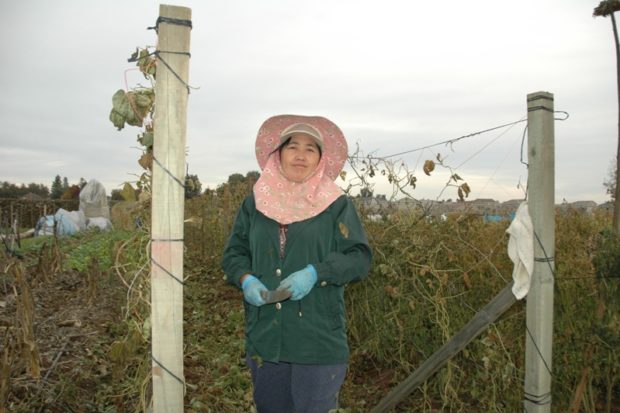
It seems like homegrown food production is on the rise in Fresno. People are digging up their lawns and replacing them with vegetable and herb gardens, backyard chicken coops are popping up in many different neighborhoods, and loosely organized vegetable and plant swaps are increasing in frequency. However, these activities require homeownership or a very open-minded landlord.
Fortunately, this doesn’t mean that folks who don’t own property or live in an apartment can’t grow their own food. One solution is a community garden.
I am taking the liberty of assuming that you already know about the benefits of community gardens and will just give you a quick reminder before getting to my point. Among the benefits are direct access to healthy food, access to culturally specific foods, greater flexibility with food budgets, community building, lower crime rates, more green spaces, educational opportunities and less blight.
Those are just a few reasons why our city and its population need to support and promote community gardens. I am sure that most readers have heard about several community gardens that exist in Fresno. Some gardens have found themselves in conflict, some struggle to stay afloat and others retain a low profile while becoming more productive with each season.
There are many reasons for the success or failure of a community garden, and each garden is a distinct entity that may or may not share similar challenges with other gardens. But these challenges do not need to be exacerbated by city regulations.
Anyone who has tried to start a garden in Fresno has done it in one of two ways. They have just built it and then dealt with any repercussions from officials as they appear, or they have tried to obtain permits and get the appropriate inspections from a variety of city departments. Those who have tried to work within the system have found that the system tends to work against them.
One of the easiest solved obstacles to building a community garden is zoning for community gardens. At this time, there is none! Public gardens are an innovative use of land within the city of Fresno, and there are many opinions on how to define the activity.
Some are concerned that gardens are equivalent to agricultural projects, whereas others view them as benign spaces that only enrich our quality of life. The former view has limited the changing of our zoning laws and left most folks needing to apply for a conditional land use permit, which is expensive and prohibitive to most people who want to develop and use community gardens.
More often than not, the potential gardeners scrap the project altogether. But if hunger, nutrition and food access issues are going to get any better, and if the city wants to contribute to the solution, this regulatory obstacle needs to be eliminated.
Thankfully, there are people with the City of Fresno (and community participants) who are rewriting the Fresno Municipal Code to be a little closer to the “benign” perspective than the “agricultural project” perspective. One goal of this rewrite is to simplify the stifling set of guidelines and regulations that often prohibit many of the types of development that lead to a healthy community.
A recently published public draft of proposed changes to the Municipal Code takes into account community gardens. If you look at Chapter 12.5, Section 8, of this draft, you will find that “the Community Garden/Playground open space type is allowed in all zoning districts and as such, may be added to any allowed open space type subject to the applicable requirements.” This, of course, is contingent on other aspects of the Municipal Code, but it is in there and is a step in the right direction.
To get involved in this process, contact the City of Fresno or Fresno Metro Ministry for a schedule of public meetings, workshops and discussion groups pertaining to zoning issues. The city has been asking for public participation and has actually taken citizens’ concerns into account. They are even working on legalizing chickens!
